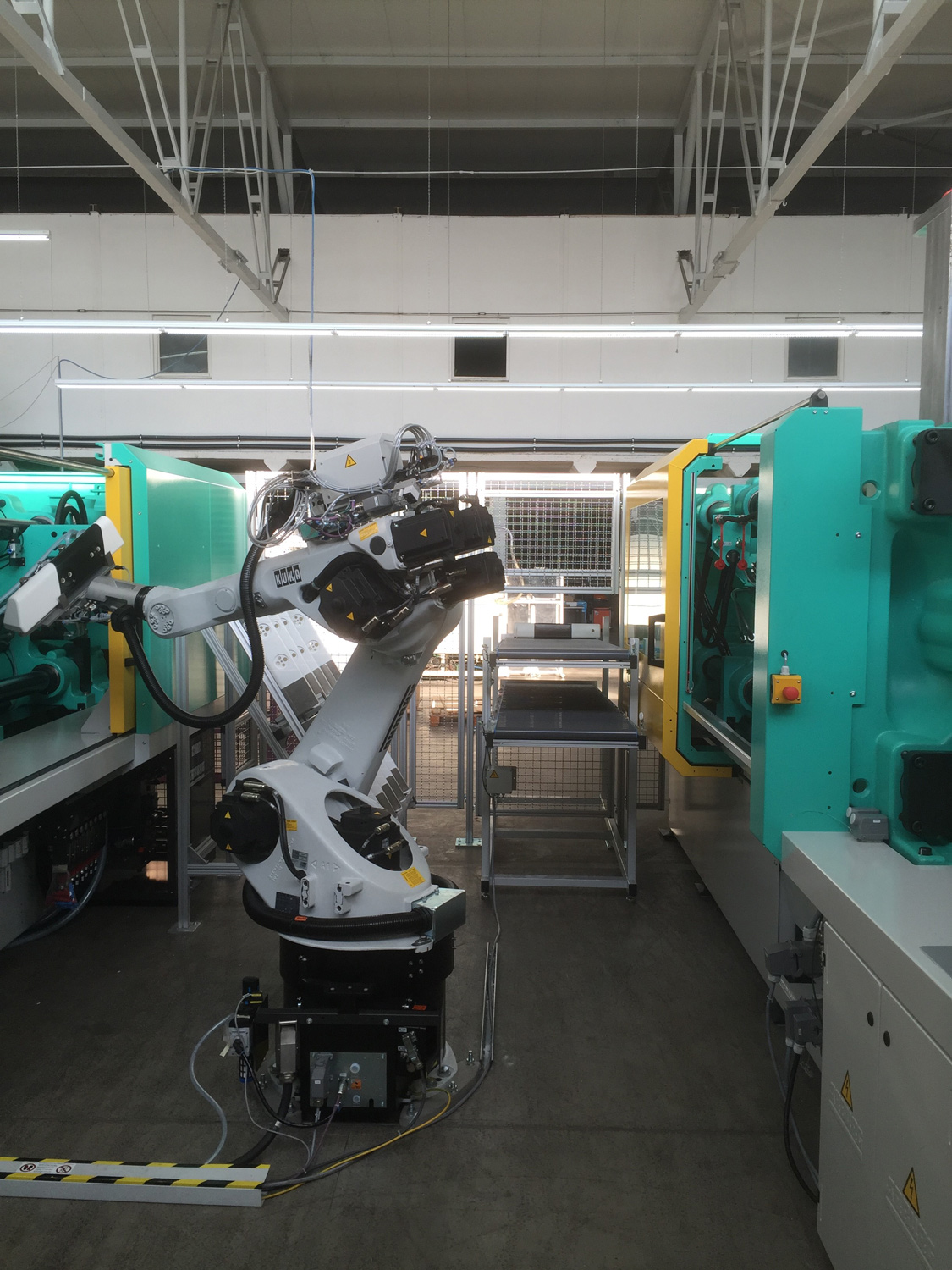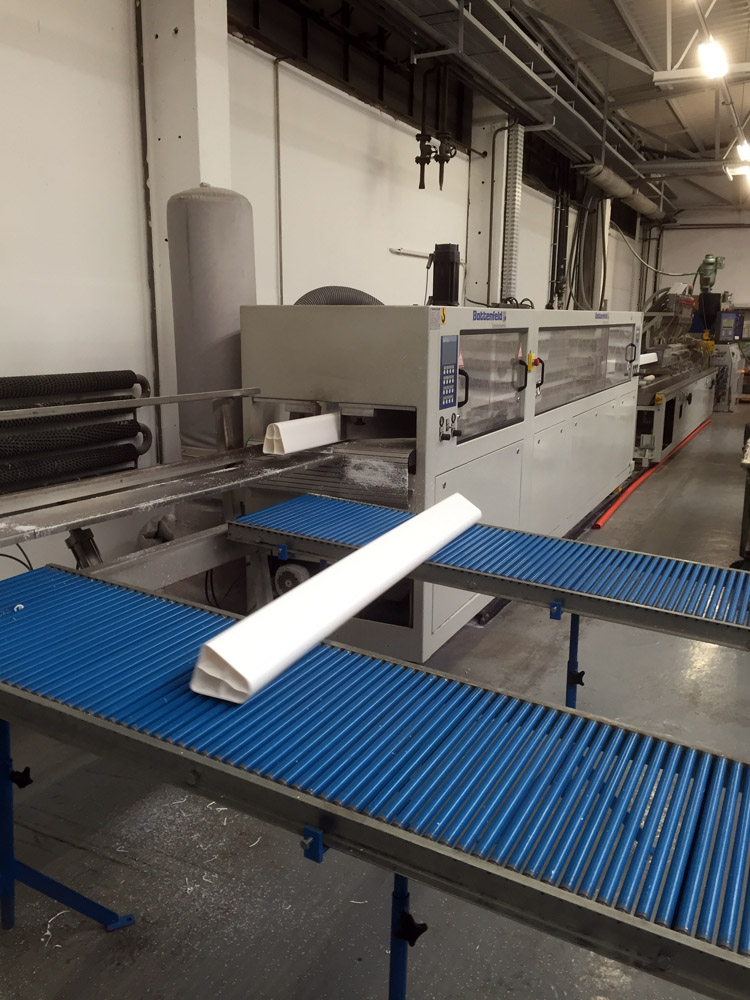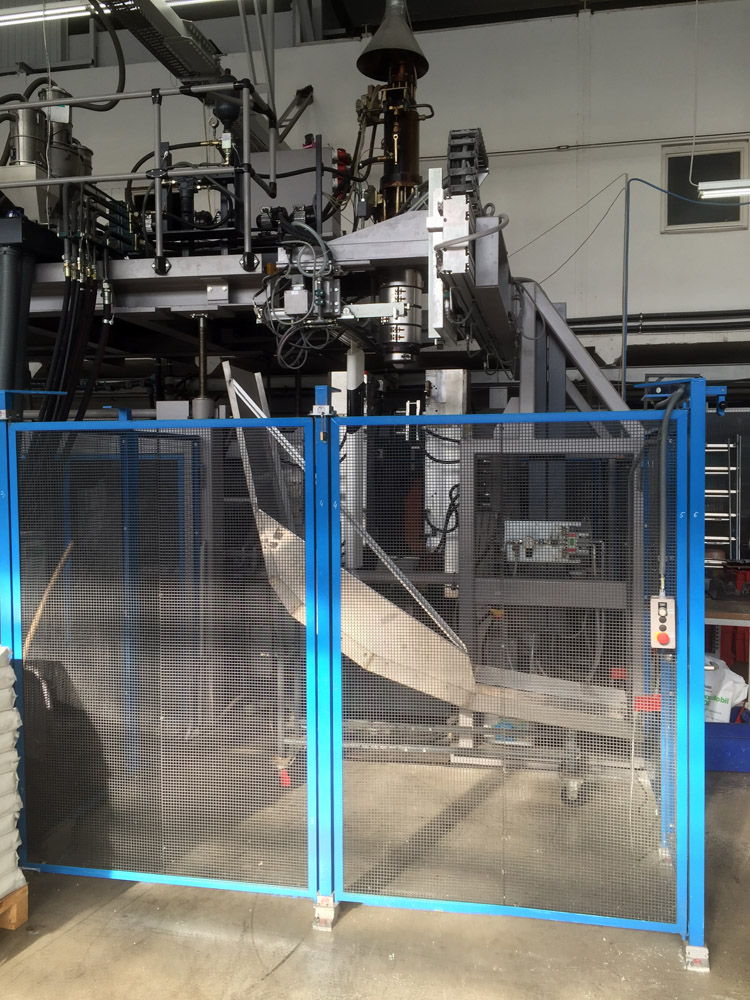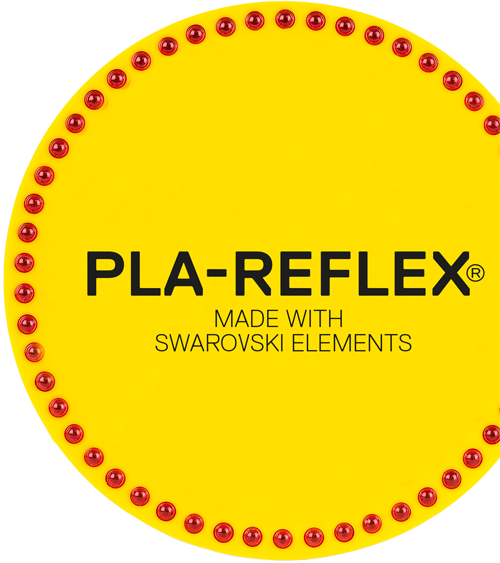Manufacturing process
Plastimat delineators are made from environmentally friendly low-pressure polyethylene. UV-stabilized and in a minimum wall thickness of 3mm, our posts can be produced cost-effectively and exactly upon customer's request.
 Injection molding
Injection molding
Most of the most precise articles are manufactured worldwide with this technique . All parameters can be produced exactly. In this production process for guide posts, a material which is minimally harder is chosen, compared to the blow / extrusion process, but has a so-called "smooth" outer skin, so that the post is less polluted than a blown guide post. The "clean" post fulfills its tasks in an optimal way- especially in the dark season.
Extrusion technology
 During extrusion, a profile with a uniform wall thickness is "pulled". The method allows a flat, almost smooth outer skin. In endless production the post is cut off to the desired length. The end piece of identical material - the cap - is either welded - at the hot process - at the melting temperature so that the post and cap later form a unit, or is injected with additional, identical material. Here, too, the post is homogeneously connected as an end product, without quality differences in its entire length. The cross section is a unit and, of course, more stable than a hollow section or as a hollow section with reinforcement.
During extrusion, a profile with a uniform wall thickness is "pulled". The method allows a flat, almost smooth outer skin. In endless production the post is cut off to the desired length. The end piece of identical material - the cap - is either welded - at the hot process - at the melting temperature so that the post and cap later form a unit, or is injected with additional, identical material. Here, too, the post is homogeneously connected as an end product, without quality differences in its entire length. The cross section is a unit and, of course, more stable than a hollow section or as a hollow section with reinforcement.
 Blowing technology
Blowing technology
The blowing process is the most cost-effective production method. A tempered soft tube is driven between two tool halves. The black "bake" of foil is inserted by a robot, then both tool halves move together. Air needles pierce the tube and "blow" the tube from the inside to the outer contour. In the manufacturing technology used by Plastimat, there is only an approx. ± 0.3 mm wall thickness difference.
